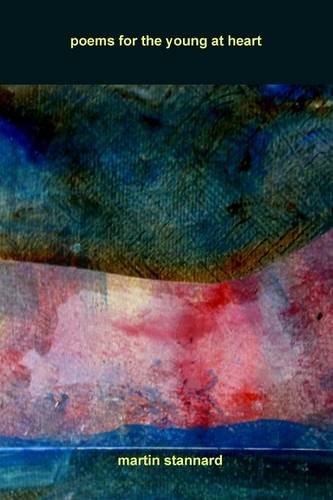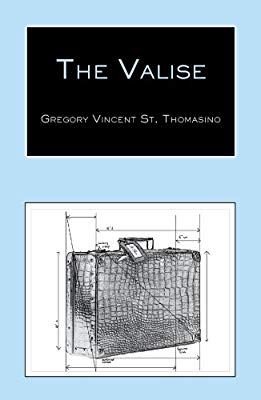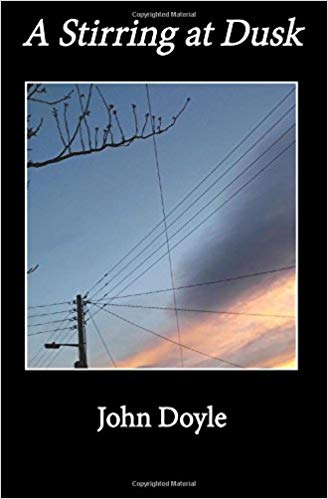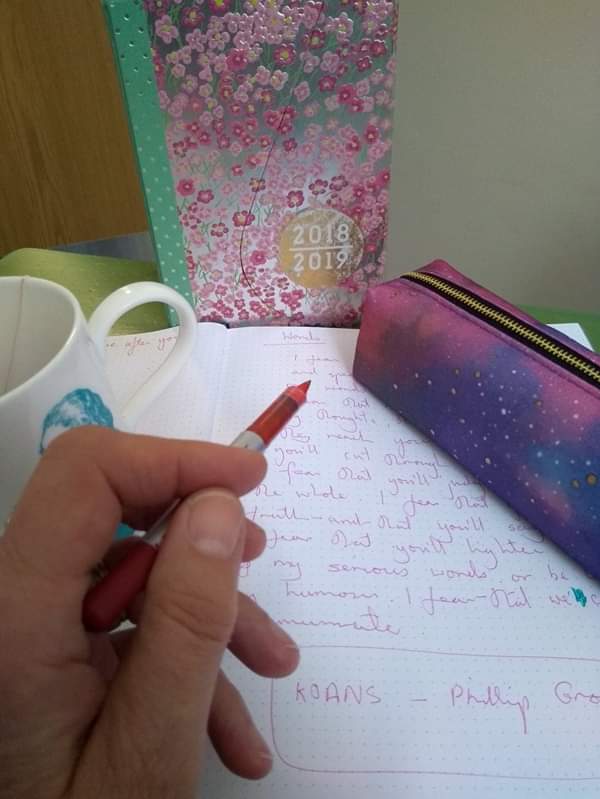Wombwell Rainbow Interviews
I am honoured and privileged that the following writers local, national and international have agreed to be interviewed by me. I gave the writers two options: an emailed list of questions or a more fluid interview via messenger.
The usual ground is covered about motivation, daily routines and work ethic, but some surprises too. Some of these poets you may know, others may be new to you. I hope you enjoy the experience as much as I do.

Martin Stannard
has been publishing poetry and criticism for some 40 years. He was founding editor of the magazine joe soap’s canoe, which some people have called “legendary”, although he’s never described it in that way. The magazine’s archives, along with many other delights, can be found at http://www.martinstannard.com.
From 2005 until earlier this year he lived and worked in China, teaching English, Literature and Culture to university students — except for the academic year 2007/8, when he was the Royal Literary Fund Writing Fellow at Nottingham Trent University.
His most recent full-length collection is Poems for the Young at Heart (Leafe Press, 2016) and a chapbook, Items, was published by Red Ceilings in August.
*
New from The Red Ceilings Press: Items
http://theredceilingspress.co.uk/
Home Page: http://martinstannard.com/
Elephants: http://martinstannard.com/elephants/ (updated daily)
Poems for the Young at Heart: http://leafepress.com/catalog/stannard/stannard.html
The Interview
1. When and why did you start writing poetry?
From a very early age I was always a big reader, although I was the only person in my family who was at all interested in books, and I wrote a few poems as an angst-ridden teenager at school – if you can call them poems – and carried on doing so more or less secretly until I was about 25, when for reasons I’m still unable to fathom I acted completely out of character and went to a poetry workshop in Ipswich, run by the poets Rupert Mallin, Keith Dersley and Frank Wood. My life changed that night, and it’s all their fault (he said humorously) …. The workshop met weekly, and was probably one of the best poetry workshops in the world ever, and within a few weeks I was performing poetry in pubs and sending things to little magazines. Most of what I wrote then was rubbish, of course, informed by wholesale ignorance and overwhelming arrogance, but one has to start somewhere. Up to that point I liked the idea of being a poet, but my poetry education was very limited, to say the least. It had got as far as ‘A’ level English, and any development beyond that had stopped at Marc Bolan. But it wasn’t very long before things became a tad more focussed. I was still writing mainly rubbish, although I’m sure I didn’t think so at the time, but I was with experienced poets, and meeting other poets, and swimming (floundering might be a better word) around in an environment where I could begin to learn about what poetry could be and what I wanted to do. As I said, my life changed as a result of going to that workshop – mainly for the better, though it came at a price, too.
Incidentally, Rupert Mallin, who I mentioned earlier and who is now focussing mainly on producing really cool visual art in Norwich (see the cover of Poems for the Young at Heart) posted a brilliant little note about the Ipswich Poetry Workshop and the poets who were there on a blog some time back. It’s at http://mallin.blogspot.com/2013/03/the-people-of-ipswich-poetry-workshop.html, which is worth a look.
1.1 Came at a price?
Well, it turned out that I became one of those people for whom art practice, or whatever you want to call it, proved to be so important – and “important” doesn’t actually come near to being the right word, but I’m not sure what the right word is – that not only can I “not do it”, but the reason I can’t “not do it” is that writing these poem things is basically who I am. And so, somewhere along the line, that finding out who I am – which sounds a bit hippy when you see it in black and white, but it’s not hippy at all, it’s fundamental to one’s life, knowing who and what you are – meant that at certain points in my life I’ve had to make certain decisions, mainly personal, and sometimes extremely traumatic, and I’ve put “the poet” aspects of my life first, because without that I’d be trying to be something I’m not, and I couldn’t do that. I tried but I couldn’t. So it’s cost me in terms of relationships, family, money … and, of course, I also contrived to hurt and damage other people along the way. I’m sure there are other explanations, or at least contributing explanations, of the way my life has gone, and how it’s turned out, but this is my take on it, and all those big decisions have not been taken lightly. I’m probably deluding myself to a certain extent, and I’m sure other people can and do combine a comfortable family life and stable relationships or whatever, and write poems or novels or paint pictures or write songs or whatever. But I couldn’t. And every time I made a decision it was, to my mind at least, about sticking with what I felt I had to do to be me, the real me, faults and all. And I know there are a lot of faults. I’d be the first to admit that. But the poetry has been the driver of everything for me since the late 1970s. You should probably take the psychiatrist’s couch away now….
2. How aware are you of the dominating presence of older poets traditional and contemporary?
As I intimated earlier, 40 years ago I would not have known much more than having not enjoyed or being bamboozled by Eliot’s “The Waste Land” at school, and knowing a bunch of other famous names, from Chaucer onward, without really knowing the poems. These days it’s obviously very different. But the word “dominating” is an interesting one. What I mean is, at the moment I have on my table, and have been reading bits of in the last week or so, François Villon, Coleridge, Ron Padgett, and John Ashbery’s translations of French poetry and prose. “Don Quixote” (I know it’s not a poem, but….) is my bedtime reading at the moment. Each of these I would regard as in some way informing what I do. Some of it I’ve known for years, some of the Padgett is new to me because it’s a Collected Poems which I’ve not had long and it’s very big, and some of the French stuff is also new to me. So what I’m saying is I’m aware of the very old, the not so old, the recent, and I also read some – and I stress the some – contemporary work, in magazines, and when I review new books or pamphlets. The reason I said that “dominating” was an interesting choice of word is that personally I don’t feel dominated by any of them, though obviously famous names are famous names, and perhaps some aspiring poets will try to write like some of today’s currently much-touted names, which is okay, because everyone starts somewhere. For my part, I feel energized – and I am deliberately avoiding the word “inspired” – by much of what I have read and the poetry I know. I go back to people like Coleridge to remind me how necessary and enjoyable the poem can be. When it comes to the contemporary it can be energizing, but it can also be energizing’s opposite. That’s not surprising, I think. There’s always going to be an enormous amount of poetry around that’s either awful, or good but not to my taste. I’ve developed coping mechanisms to help deal with the stuff I find myself reading and don’t like. I may perhaps have wandered away from the point of your question here.
3. What is your daily writing routine?
These days I don’t have a routine. I have plenty of free time now I’m retired, so I take it as it comes. Until recently I was making sure I was at my desk for certain hours of the day to ensure I actually worked and didn’t fritter away the hours of my new-found free time with daytime TV, but I think that was a hangover from the fact that until I came back to the UK from China earlier this year I was so busy I had to make sure I made time to write, and also I know I can be lazy. But now I’ve settled into life here I realize I can do what the hell I want to do. As it happens, I write every day, more or less, because I enjoy it, but I do take it as it comes, and don’t fret if I have a day when no writing gets done. On the days I do write, it could be anything from a title, to a line, to a whole poem …. or just fiddling with the classic “work in progress”. I enjoy what I do, and I’m also enjoying not feeling any pressure to get it done. The result seems to be that it gets done anyway.
4. What motivates you to write?
I enjoy it. And I’d refer you back to my answer to question 2. I don’t feel the need of motivation. Writing is what I do. And I enjoy it.
5. Who of today’s writers do you admire the most and why?
Well, given that I’ve read probably one per cent or less of today’s writers I think this is impossible to answer. I could reel off a list of my friends, who are friends because (a) they are good people who I get on with and (b) I like their work — but I might either (a) make the list too long and bore the pants off your audience or (b) forget someone, and risk losing a friend. There are people whose work I like and will always check out if I see it listed on a contents page or whatever, but if I don’t mention them and they see this they might wonder (a) why they are not listed amongst my friends, or (b) what they would have to do to join such an exalted band of people. This is dangerous territory, a territory that has become much more dangerous now I am in this country and not living on the other side of the world.
6. What would you say to someone who asked you “How do you become a writer?”
I would rather they asked me “How do you become a poet?” because the term “writer” covers a wide variety of activities, most of which I’m not really qualified to talk about, but if they were to ask about being a poet then I could repeat what another poet said a few days ago: you don’t become a poet, you either are a poet, or you’re not. But if you (not you personally, but our hypothetical questioner) want to dismiss that idea because it sounds pompous or elitist and still want to “become a poet” the question you should probably be asking yourself is “Why do I want to be a poet?” The answer to that question will say a lot about whether or not you will “become”…. On the other hand, and in a different mood, I could be much more generous and just talk about how much work you have to put in to get to where you want to be. Lots of reading, lots of writing, and lots of work. Loads of people think poetry is easy because poems are often short, and these days don’t even have to scan or rhyme. They’re wrong.
7. Tell me about the writing projects you have on at the moment.
Oh, I don’t really think in terms of “projects”. But for the last couple of years or so I’ve been engaged in working on English versions of poems from China’s Tang Dynasty – poems from the Tang Shi, a collection of 300 poems which includes well-known names like Li Bai, but lots of lesser known poets too. They’re not quite direct translations – they begin life as direct translations which are then re-worked to varying degrees, insofar as I edit and tweak them a bit, and add a tiny something of my own – a phrase or a line at most – in order to present them afresh, as it were, but still staying as faithful as I can (I think and I hope) to the meaning and tone of the original. Some have been published in magazines, and it seems to be likely that Shoestring Press will be publishing a collection of them later next year. I usually have one of those poems kind of “in progress” hanging around on my desk. As I mentioned, there are 300 poems in the collection, and although I don’t plan to do all of them it’ll keep me going for a while. Other than that, I’m just doing what I do, day by day.






